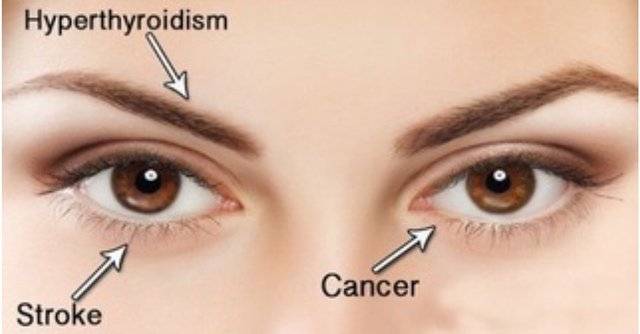Here's what your eyes say about your health
 Eyes are the window into the body, offering a great pre-warning for many life-threatening illnesses. Most of us think we only need their eyes checked for vision problems, but all of us should have regular examinations, as conditions such as diabetes can be detected in the eye before they start to cause problems in the body.
Eyes are the window into the body, offering a great pre-warning for many life-threatening illnesses. Most of us think we only need their eyes checked for vision problems, but all of us should have regular examinations, as conditions such as diabetes can be detected in the eye before they start to cause problems in the body.
Here are some common eye symptoms that can be detected by opticians and what they could reveal about your health.
Red eyes
Could be: High Blood pressure
When an optician shines a light into your eyes, they see the tiny blood vessels in your retinas - the sensitive tissue at the back of the eye.
High blood pressure can make these blood vessels appear twisted - or even cause them to burst so the eyes look red.
A quarter of adults with high blood pressure don't know they have the condition, which can cause strokes.
Yellow deposits behind the eye
could be: Diabetes
Yellow deposits of fat, or small tears in the retina, are signs of Type 2 diabetes. A big change to your glasses prescription is another. Early diagnosis is key to avoiding long-term, sometimes fatal, complications.
Iris rings
Could be: High cholesterol
White rings around the iris — the coloured part of the eye — are a sign of high cholesterol levels.
Another clue is 'xanthelasmas' — flat, white fat deposits under the skin on or around your eyelids. Studies show people with both these symptoms have a higher risk of heart disease.
Pale inner eyelids
Could be: Anaemia
If the inside of your lower eyelids look pale when pulled down, you may be anaemic - lacking iron, which helps makes red blood cells. Anaemia can be treated with iron supplements, but can be a sign of internal bleeding, so see your GP.
Bulging eyes
Could be: Thyroid problems
Prominent-looking eyes can run in families, but eyes that appear to bulge may be evidence of an overactive thyroid. Abnormal levels of thyroid hormone cause the tissues around the eye to swell, making it appear the eye is popping outwards.
Droopy eyelid
Could be: Bell's Palsy or Stroke
A drooping eye can indicate Bell's Palsy, a temporary facial paralysis. It can also be a symptom of a stroke, especially if the speech is slurred.
Hi! I am a robot. I just upvoted you! I found similar content that readers might be interested in:
https://www.mirror.co.uk/lifestyle/health/how-your-eyes-could-hold-2059975